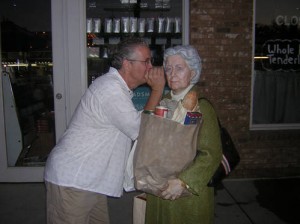“Versions” of the Truth

© Susan Todd-Raque
A friend of mine once told me that her mother had always said: “little white lies are alright.” The problem with that assumption is that it becomes learned behavior, often hurting other people, but it really ends up hurting the liar more in the long run. Little lies can lead to gossiping, passing along rumors, distorting the truth or even bigger lies. What is real becomes lost in lies.
Children are taught about fairy tales and fictional stories, yet they need to be reminded what is real and what is not. Believing in the possibilities of life is different than growing up believing that telling fictional stories as truths about other people is right.Today, with all the versions of the truth swirling around us, even watching the news on television it is difficult to believe all we hear. Years ago, the news was delivered in almost monotone voices meant to present objectivity. Now, it seems as if the newscasters, even people of influence, try to theatrically present the news, with their voices fluctuating with the words as if to sway us to their version of the truth, reduced to smaller segments chosen by the television station. We hear parts of the story but not enough to know the facts.
Therefore, let’s discuss why knowing the difference is important and how lies grow. As habits, all of this begins early in life. Children learn from their own parents’ actions. Then they learn from peers and later from people they idolize. What may start as a little white lie becomes so embedded in our ways that we begin to believe we are not hurting someone by repeating our version of the truth. Misrepresenting the facts becomes a personality trait, which can lead to distorting the truth. We crave the attention we receive when people are enthralled by our distortions and our egos want more so we do it more.
Taking a step further, passing along rumors or gossip is the embellishing of the facts to make one self feel good, receive attention by controlling the information and building one’s own self esteem, at the expense of the someone else. However, we are only fooling ourselves. If our behavior is consistent, people know we are gossips, even if we still think we are not.
Think about what you say, what you hear, what you repeat. Research to find out what the truth is before you speak. Benjamin Franklin was quoted as saying “Believe none of what you hear and half of what you see.” There is truth in his statement, and it now applies to what we read.
It is not about “misspeaking,” it is about lying…or not.






